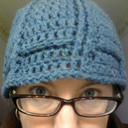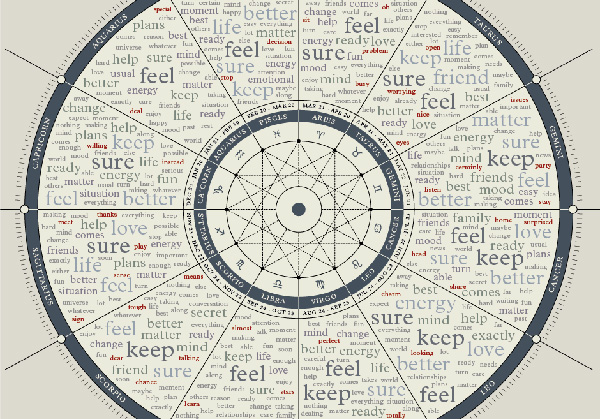Well, after 25 guest posts, we’ve reached a good round number for the Voices of Doubt series, and today’s post by Alise Wright will be the final one. I hope you’ve enjoyed the series as much as I have. To me, it’s been encouraging to hear from so many excellent writers and thinkers about the presence of religious doubt in their lives and how they’ve learned to live with it.
 I got to know Alise (“uh-LEASE,” like what you get with a car) around the time she interviewed me for an O Me of Little Faith review and giveaway. The book resonated with her because her husband had recently “deconverted” from Christianity to atheism and she was dealing with the fallout from it. I was fascinated by their story and have kept up with her blogging since. (Her post about celebrating Christmas as an inter-“faith” family is a great example of her work.)
I got to know Alise (“uh-LEASE,” like what you get with a car) around the time she interviewed me for an O Me of Little Faith review and giveaway. The book resonated with her because her husband had recently “deconverted” from Christianity to atheism and she was dealing with the fallout from it. I was fascinated by their story and have kept up with her blogging since. (Her post about celebrating Christmas as an inter-“faith” family is a great example of her work.)
So I’m thrilled to have Alise filling the final guest slot. Ladies and gentlemen…
————-
Nothing quite shakes the faith of a doubting Christian like seeing your spouse turn from belief to unbelief.
Faith has never been my strong suit. I remember as a 7th grade student, sitting in my pastor’s office after one of our confirmation classes, crying as I asked him how we could know that our religion was the right one when billions of other people believed just as fervently that theirs was correct. I’m not sure why it had never occurred to me before that time, but it absolutely devastated me that I could be following the wrong religion.
As I became an adult and attended numerous churches in different denominations, my doubts grew. Infant baptism vs. Adult immersion. Yes women pastors vs. No women pastors. Homosexuality is a grave sin vs. LGBT affirming. Tongues are dead vs. Initial evidence. The incongruities even among those who claim to follow the same God caused me untold consternation.
But for most of my adult life, I was able to lean on the faith of my husband. He shared most of my questions, but his faith was unshaken. Because of that, I was able to push my doubts down and not really pay them any mind. They were there, to be sure, but I just ignored them.
All of that changed when my husband told me that he no longer believed in God. Every doubt that I had came flying forward. Doubts about our marriage surviving. Doubts about how our children would be raised. Doubts about how our friends and family would respond. And of course, doubts about my own faith.
Most of my concerns were addressed with relative ease. Becoming an atheist didn’t make my husband lose all sense of right and wrong. The thirteen years that we had spent together didn’t suddenly become null and void because we no longer shared a faith. We have always wanted our children to come to their faith on their own, so little changed there. Those close to us were supportive of my husband and of me.
But those” God doubts” weren’t as easily put to rest. When it comes to evidence for God, the pro-God side comes up pretty short. It’s hard to argue with a lot of atheist reasoning, and living with someone who is a former Bible college student who no longer believes, well let’s just say that I’m not anticipating winning any debates around here. In those early days after my husband’s de-conversion, I felt incredibly alone with my doubts. And often when you’re alone with something, you take the time to examine it more closely.
What I found is that doubt is more common than many of us in the Church like to admit. I was amazed at the community of doubters that I encountered when I can face to face with my own questioning. I had spent years assuming that the doubts that I had were rare, only to discover that there were many others just like me who had unanswered (and sometimes unanswerable) questions.
I also found that, as I accepted my doubt, my faith began to grow. When I treated my doubt as something that needed to remain hidden, it had a tendency to make me cynical, bitter and angry. When I admitted that it’s simply a part of who I am, I found I could move beyond it and search in a more authentic way for the God whom I love.
Having your faith shaken can be a frightening thing. But sometimes shaking is just what is needed to stir up something that has gone stagnant.
————-
Thank you so much, Alise. Keep up with Alise Wright on Twitter as well as her writing blog and her “Big Mama” blog and Facebook.
Previous posts in the “Voices of Doubt” series…
• Ray Hollenbach: Learning from Thomas
• Sarah Cunningham: Doubt as a Hook
• Shawn Smucker: Doubt as Discovery
• Jamie Wright: A Born Doubter
• Trudy Morgan-Cole: The Squirmin’ Herman of Doubt
• David Sessions: The Hard Work of Faith
• Dean Nelson: Test Everything
• Carlene Bauer: Prodigal Daughter
• Larry Shallenberger: The Knight and the Fortune Cookie
• David Dark on Sacred Questioning
• Cara Davis: A Textbook Case
• Matthew Paul Turner: Letting Them See My Doubt
• Sally Lloyd-Jones: Where Did You Put Your Faith?
• Chad Gibbs: When It Doesn’t Seem Fair
• Leeana Tankersley: The Swirling Waters
• Robert Cargill: The Skeptic in the Sanctuary
• Dana Ellis: Haunted by Questions
• Rachel Held Evans on Works-Based Salvation
• Winn Collier: Doubt Better
• Tyler Clark on Losing Fear, Losing Faith
• Rob Stennett on the Genesis of Doubt
• Adam Ellis on Hoping That It’s True
• Nicole Wick on Breaking Up with God
• Anna Broadway on Doubt and Marriage

